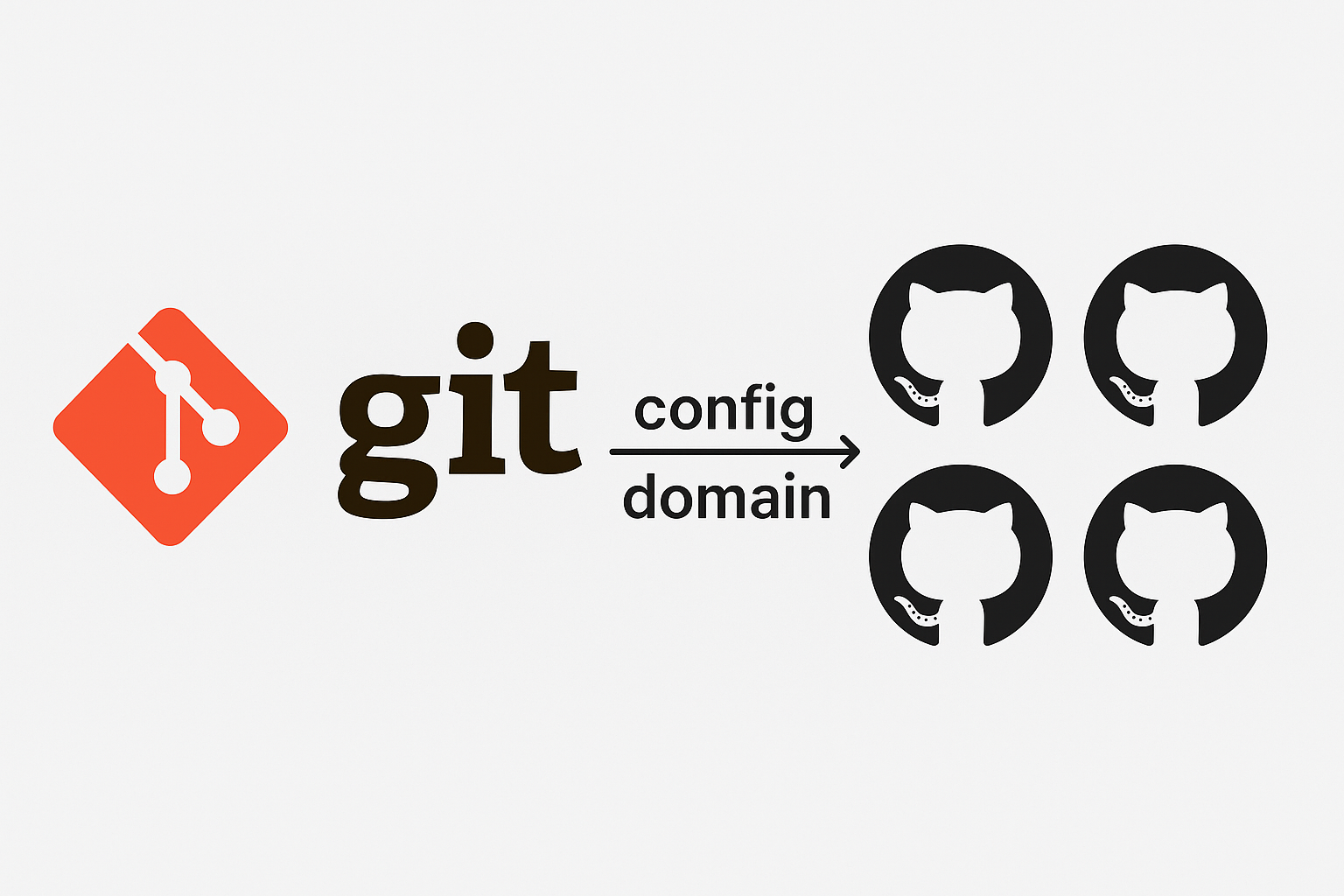This article focuses on managing multiple Git accounts with SSH.
There are plenty of guides on handling multiple Git accounts, but many are fragmented or only solve part of the problem. Here’s a streamlined summary for practical use.
Common scenarios include:
- Using different SSH keys for different domains
- Using different SSH keys for the same domain
- Using different Git accounts for the same domain
Ultimately, there are two main challenges:
- Switching SSH keys with the SSH client
- Switching Git accounts with the Git client
In most cases (about 90%), simply using different SSH keys is enough. The Git account identity (username <username@domain>) is usually less critical.
SSH Account Configuration
For SSH basics, see GitHub’s official docs.
The most common approach is to use the Host directive in your ~/.ssh/config to specify different keys:
Host github.dev
HostName github.com
IdentityFile ~/.ssh/github_rsa
IdentitiesOnly yes
Host gitlab.yourdomain.com
IdentityFile ~/.ssh/gitlab_rsa
IdentitiesOnly yes
This lets you use different SSH keys for different repos, even with the same Git account.
Git Account Configuration
Why do this?
- Companies often use private Git servers with domain accounts
- You may want to separate personal and work accounts on GitHub
You can have Git use different accounts per workspace using git config includes:
[includeIf "gitdir:~/workspace_github/"]
path = ~/.gitconfig-github
[includeIf "gitdir:~/workspace_gitlab/"]
path = ~/.gitconfig-gitlab
[includeIf "gitdir:~/workspace_work/"]
path = ~/.gitconfig-work
[filter "lfs"]
required = true
clean = git-lfs clean -- %f
smudge = git-lfs smudge -- %f
process = git-lfs filter-process
[init]
defaultBranch = main
[core]
symlinks = true
ignorecase = false
[pull]
rebase = true
Each ~/.gitconfig-xxx just sets your name, email, and optionally a signing key:
[user]
name = github_username
email = [email protected]
signingkey = <YOUR_GPG_KEY_ID>
[init]
defaultBranch = main
[commit]
gpgsign = true
With this, you’ll use the right Git identity in each workspace.
Combine this with your SSH config. Test with ssh -T [email protected].
For example, to use two GitHub accounts with different SSH keys, just replace github.com with your custom host (e.g., github.dev) when cloning:
git clone [email protected]:user/repo.git
Bonus: Custom git Wrapper
To automate domain switching, here’s a simple wrapper script. It checks your current directory and rewrites the clone URL if needed:
#!/bin/bash
REAL_GIT="/usr/local/bin/git"
if [[ "$1" == "clone" ]]; then
current_dir=$(pwd)
if [[ "$current_dir" == /Users/<your_username>/workspace_github* ]]; then
shift
for arg in "$@"; do
if [[ "$arg" =~ ^git@github\.com: ]]; then
new_url="${arg/[email protected]:/[email protected]:}"
echo "[git wrapper] Replacing clone URL with: $new_url"
exec "$REAL_GIT" clone "$new_url"
fi
done
fi
fi
exec "$REAL_GIT" "$@"
